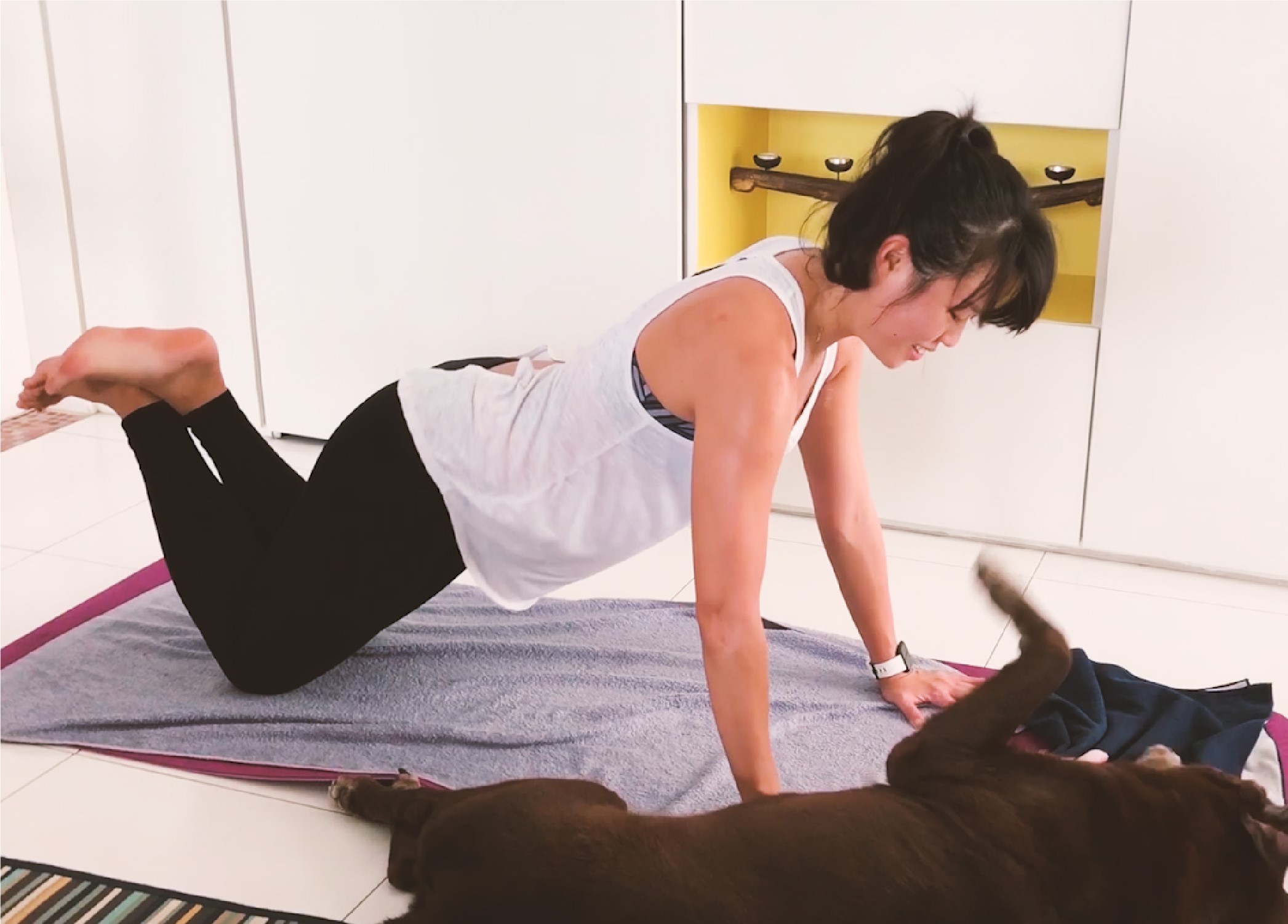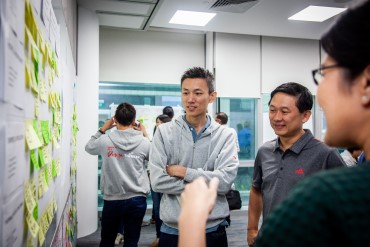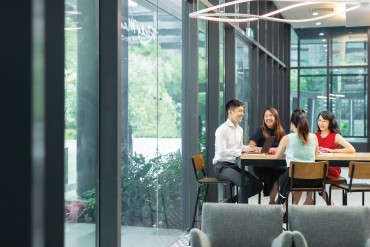08 Jul 2020
Building organisational resilience in an ever-changing COVID-19 landscape
 In a Women’s Leadership Initiative (WLI) webinar organised by the Urban Land Institute Singapore (ULI Singapore), Ms Zheng Wanshi, Group Chief Strategy and Planning Officer of Frasers Property Limited, shared her insights on how Frasers Property has been building organisational resilience and navigating changes in a fast-changing environment, and how this has become even more relevant with the current COVID-19 landscape. Wanshi sits on the ULI Singapore Executive Committee and is the Co-Chair of the WLI Steering Committee at ULI Singapore. Below is an extract from the panel discussion at the WLI webinar, where she addressed the key considerations in getting our employees ready, resilient and agile.
In a Women’s Leadership Initiative (WLI) webinar organised by the Urban Land Institute Singapore (ULI Singapore), Ms Zheng Wanshi, Group Chief Strategy and Planning Officer of Frasers Property Limited, shared her insights on how Frasers Property has been building organisational resilience and navigating changes in a fast-changing environment, and how this has become even more relevant with the current COVID-19 landscape. Wanshi sits on the ULI Singapore Executive Committee and is the Co-Chair of the WLI Steering Committee at ULI Singapore. Below is an extract from the panel discussion at the WLI webinar, where she addressed the key considerations in getting our employees ready, resilient and agile.
Our employees are our most valuable resource and it is crucial to help prepare them for the changes and trends arising out of the crisis. Many of these trends existed before COVID-19 and are now being accelerated. We would like to support our employees to not just cope but thrive in this ever-changing environment. How do we get there? I’ve identified four key areas:
i) Equipping employees with information and context 
When we speak of the “new norm”, it is about change. Change can be unsettling – and even more so when we do not know how to cope with it. The key to coping with change is understanding it.
At Frasers Property, we have been looking “outward-in” and “future-forward” to connect the dots to the macroeconomic, social and geopolitical trends we are seeing. These trends range from growing de-globalisation, a low interest rate environment, digitalisation, to environmental, social and governance matters. These trends are not only complex but interact with one another to amplify their impact on individuals, businesses and governments. To us, as a multinational real estate company investing in, developing in and operating across geographies and property sectors, all these trends matter as we think ahead and prepare for new realities.
There is active dialogue within our leadership team to keep abreast of these changes and the impact of the multiple threads of disruption to ensure we align strategies and priorities across the Group and the markets we operate in. Importantly, we frequently engage with our employees with various communications including quarterly group townhalls; while leaders of the business units regularly conduct communication sessions to update and address employees’ questions on our respective businesses.
ii) Prioritising employees’ wellness 
We have been concerned our employees are experiencing greater emotional and cognitive fatigue during this pandemic. In response, we have rolled out various measures to take care of them and their overall well-being. This includes sharing tips on best practices on managing teams remotely, offering employee assistance programmes for those in need (including counselling support), and online wellness activities.
With telecommuting becoming a norm, we are reviewing our flexible working arrangements policy and seeing how to enhance them. It is important to actively listen and continue checking in with our employees, especially during these challenging times. We have recently concluded a group-wide employee pulse survey to gather insights on how our employees have been coping in the past few months since the pandemic broke out and will be addressing the additional organisational response that is needed.
iii) Building and empowering a future-ready workforce 
At Frasers Property, we have been boosting the adoption of design thinking as a mindset, a common language and approach towards creative problem-solving. This is how we want to build our organisational “muscle memory” to better address the evolving needs of our customers and employees in a human-centric way. For instance, in Australia, our hospitality and residential teams, through a design thinking session, collaboratively came up with the idea of offering hotel rooms in Australia’s Central Business District to the residential rental market. It is a nimble response to the reduced demand for conventional hotel offerings in a COVID-19 context. (Read more here.)
We also want to embrace the future of work (FoW) to improve the effectiveness of what we do. This means encouraging the right mindset shifts, changes in how we work and equipping our employees with the right training, digital tools and infrastructure to support them. For example, through our internal Learning Academy, we are actively curating and developing learning programmes centred on transferable and functional skills. These learning programmes revolve around themes such as innovation, technology & digitalisation, sustainability and industry education. We are going online with many of them in the spirit of FoW and to also provide wider accessibility across geographies.
iv) Focusing on purpose, core values and agility to create a sustainable company culture 
In times of change, our shared purpose as a company and having a positive and constructive culture have become even more important. The real estate business is fundamentally about the built environment and its relationship with the people interacting with it. The idea of “Experience matters” unifies us and serves as our North Star. We are also guided by our core values of being collaborative, progressive, respectful and real. At the end of the day – even with the new norm and its manifest changes – it focuses us as a company: we can stay resilient, even thrive, when we improve the quality of the experience.
In a fast-moving environment, one needs to be agile in response and action. Therefore, we want to empower our employees with information, skillsets and a strong organisational infrastructure, so they can excel in meeting the needs of our customers and businesses.
This is especially relevant given the scale of our business across geographies and sectors. Moving up the learning curve is best accelerated in a networked organisation of team-based work. This is where we are encouraging both formal and informal networks of collaboration across our group to foster exchanges of best practices and knowledge.
The future of organisations is no longer based on what has worked, but what will work moving forward.
